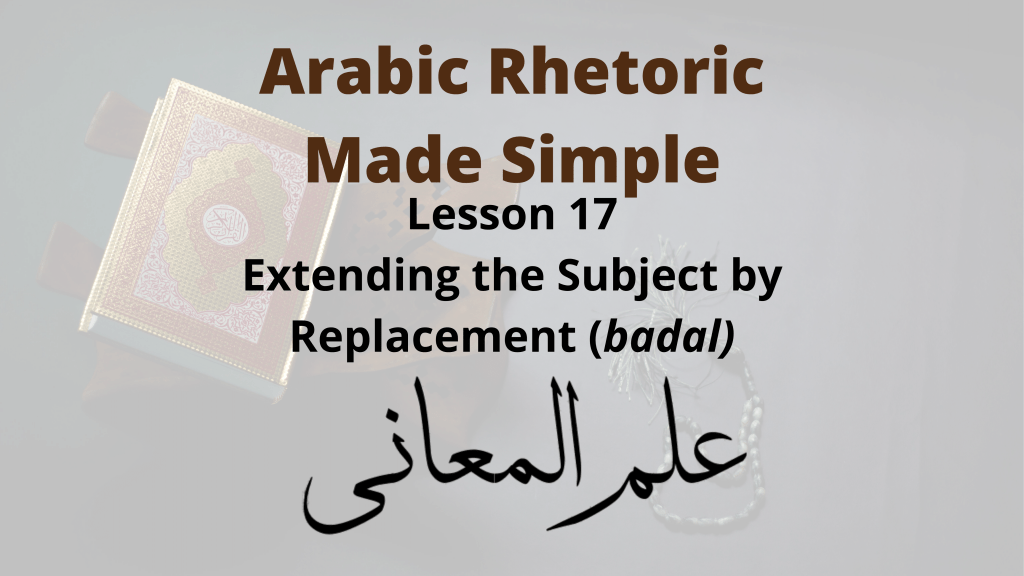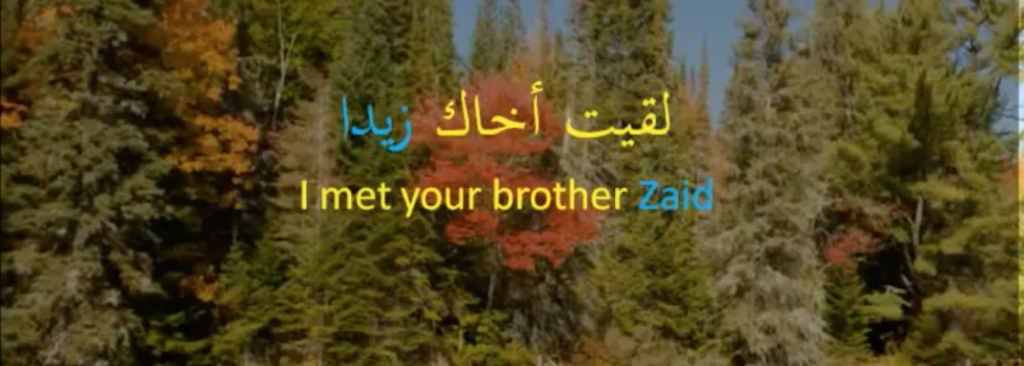In this lesson on ilm ul-ma’aani we are going to talk about why you would extend the subject of your sentence with one of the types of badal بدل.

Basic Overview
Badal as you know from Arabic grammar is where you follow one term with another term, e.g. one word with another word. The first is a way of introducing the second, and the second is really what you want to say in the first place.
For example:

“Your brother” and “Zaid” are actually referring to the same person. Saying “your brother” is just a way for setting the stage. “Zaid” is really the point of the conversation.
What we want to learn in this lesson from a balagha perspective is why you would bother to even say “your brother”, when what you really wanted to say all along was just “Zaid”.
To Stress the Subject
As far as the subject of a sentence goes, the reason you would extend it with بدل is to stress it. This is true for all of the types of badal in Arabic. Meaning, that you want to affirm and really establish who or what the subject is.
Notice that stressing the subject is becoming a common theme with these extensions. Extending through the various types of badal is no exception.
Badal al-kul بدل الكل
So, when we say: Your brother Zaid came to me”. We have mentioned this person once by saying “your brother”, and again by saying “Zaid”. So, this double reference stresses the subject. And that is for بدل الكل
Badal al-ba’dh بدل البعض
What about بدل البعض.
For example: The people came to me, most of them.
Here too, when we say “the people”, it already includes most of them. When we say “most of them”, it is the second time it is being mentioned. So, again this double reference stresses the subject.
Badal al-ishtimaal بدل الإشتمال
Finally, what about the last type of badal بدل الإشتمال .
For example: Zaid was stolen, i.e. his clothes.
This is very interesting. When you say “Zaid was stolen”, the verb “stolen” cannot actually occur on Zaid, in a literal way. Meaning it is not Zaid that the thieves picked up and took with them. Obviously, it is something that belongs to Zaid. So, this figurative relationship keeps the listener wondering and waiting, and it begs the question that if Zaid wasn’t stolen, then what was?
Saying something that cannot possibly be real, like “Zaid was stolen”, and keeping the listener waiting like this is as if you have already mentioned his clothes, in a foreshadowing kind of way. As before, even this type of double reference stresses the subject.
- Proceed to next lesson: Bringing a ضمير الفصل Between the Subject and Predicate
- Return to index page: Intro to Ilm Ul-Ma’ani
- Start free lessons: Sign Up for Free Mini-class